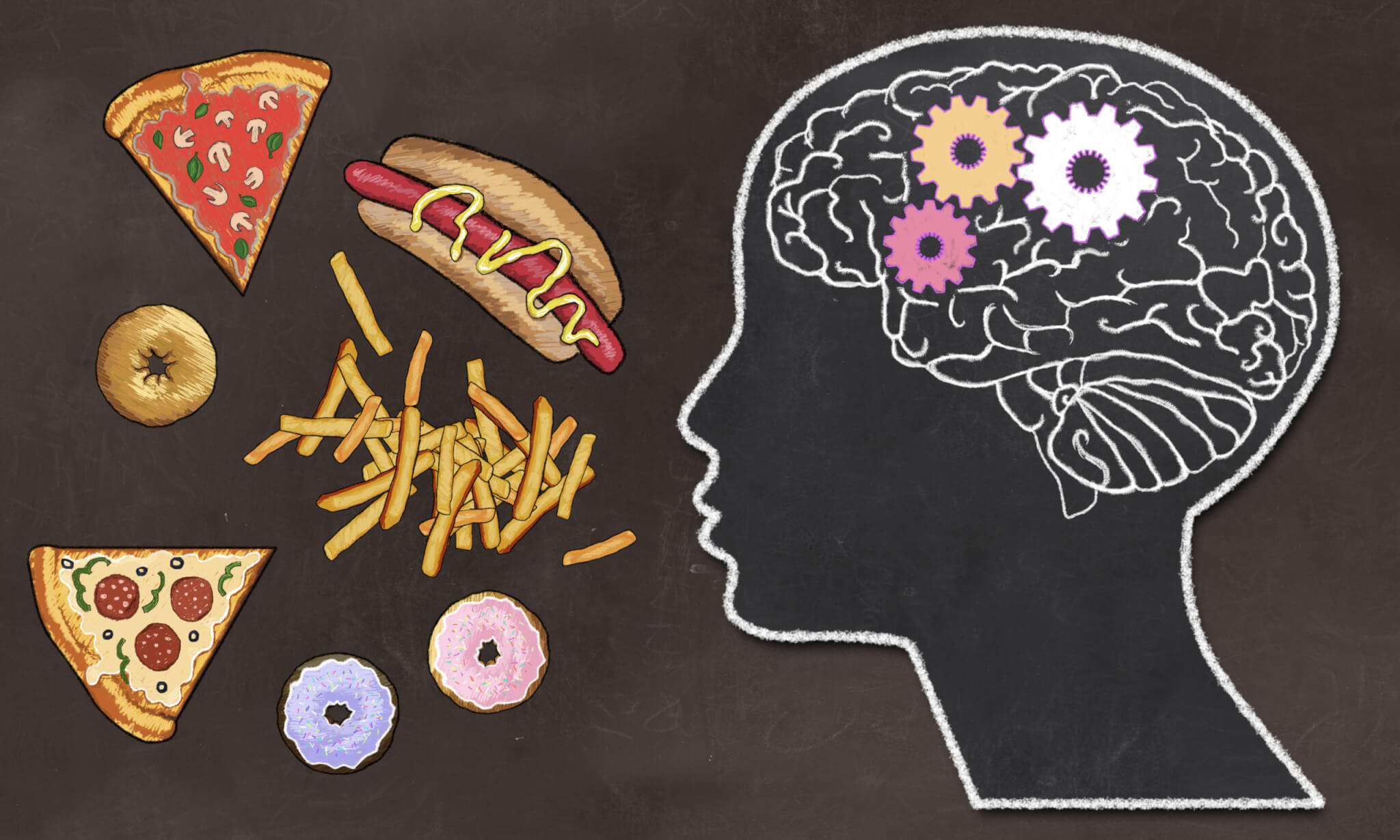LOS ANGELES — Every parent is aware of the detrimental effects drugs and alcohol can have on a child’s developing brain, but new research suggests moms and dads all over may want to start considering candy bars just as bad as beer cans. A study conducted using rodents at the University of Southern California found rats fed a diet full of fat and sugar during adolescence suffered long-term memory impairment persisting well into adulthood.
All in all, the study authors believe these findings show that a junk food-filled diet may disrupt a teen’s memory ability for a long time, just like rats.
“What we see not just in this paper, but in some of our other recent work, is that if these rats grew up on this junk food diet, then they have these memory impairments that don’t go away,” says Scott Kanoski, a professor of biological sciences at the USC Dornsife College of Letters, Arts and Sciences, in a media release. “If you just simply put them on a healthy diet, these effects unfortunately last well into adulthood.”
While developing the study, Prof. Kanoski and postdoctoral research fellow Anna Hayes took into account prior research that uncovered a link between poor diet and Alzheimer’s disease. Those diagnosed with Alzheimer’s disease tend to display lower levels of a neurotransmitter called acetylcholine in their brains. That neurotransmitter is essential to memory and many other functions like learning, attention, arousal, and involuntary muscle movement.
So, researchers wondered what that might mean for younger individuals following a similar fat-filled, sugary, Western diet, especially when their brain is undergoing significant development during adolescence. By tracking the influence of the diet on the rodents’ levels of acetylcholine and having the rats undergo some memory testing, researchers successfully learned more about the important relationship between diet and memory.

Next, study authors tracked acetylcholine levels among a group of rats following a fatty, sugary diet, as well as among a control group of rats. They analyzed their brain responses to certain tasks intended to test their memory. From there, researchers analyzed the rats’ brains post-mortem for any signs of disrupted acetylcholine levels.
The memory test used in the study involved allowing the rats to explore new objects in different locations. Then, days later, researchers reintroduced the rats to a scene that was nearly identical — except for the addition of one new object. Rats who had been on the junk food diet showed signs of not being able to remember which objects they had previously seen and where. Meanwhile, those in the control group were more familiar with their surroundings.
“Acetylcholine signaling is a mechanism to help them encode and remember those events, analogous to ‘episodic memory’ in humans that allows us to remember events from our past,” Hayes explains. “That signal appears to not be happening in the animals that grew up eating the fatty, sugary diet.”
Prof. Kanoski emphasizes that adolescence is a very sensitive period for the brain, as important changes occur in development.
“I don’t know how to say this without sounding like Cassandra and doom and gloom,” he adds, “but unfortunately, some things that may be more easily reversible during adulthood are less reversible when they are occurring during childhood.”
In conclusion, the research team adds there is some hope for intervention. Prof. Kanoski says that during another round of the study, study authors examined if the memory damage in rats raised on the junk food diet may be reversible with medication inducing the release of acetylcholine. They used two drugs for this purpose: PNU-282987 and carbachol, finding that with those treatments given directly to the hippocampus, a brain region responsible for memory often disrupted by Alzheimer’s disease, the rats’ memory ability returned.
However, without that special medical intervention, Prof. Kanoski stresses more research is necessary to understand how memory problems from a junk food diet during adolescence may be reversible.
The full study can be found here, published in Brain Behavior and Immunity.

That is such…ahem…baloney. My parents worked hard in the fields, were poor, grew ALL their own food. Junk food? They could only afford what came from their own fields and the few cattle they raised for beef. Every single time the “study finds” posts another “fact” it ALWAYS goes against the truth we all see in our own families and friends. My mother and my sister, who also never ate junk food in her childhood, both died of Alzheimers. My mothers’ family is riddled with Alzheimers – 9 brothers and sisters, all who had it. All who never ate junk food in their childhood. It’s GENETIC! Why won’t scientists just admit it and stop trying to make up possibilities?
Where does it say anywhere I that article that junk food causes Alzheimer’s?
Wow, so peer reviewed and scientific!
Pure hogwash, rubbish.
Oh good …. more “sciencetific” malarkey.
One thing we know for certain. This could not have been caused by any jabs.
Most likely the problem is air conditioning, meat consumption, cars, guns, and freedom.
I find it horrifying that mothers buy baby formula from the pharmaceutical industry to feed their babies with.
Hmm, what is junk food for rodents in lab. Junk food for humans if they would work hard e.g. walk 12 miles then it would not be junk. Sugar and fat are not the problem, excessive eating is the issue. Useless research pretty much
So all of those space food sticks and Tang are to blame for my memory woes!
I was just about ready to write a comment, but I forgot what it was.
Anyway, the thing about it is……wait, what is the topic?
Not to mention what sugar does to their teeth. Animals don’t have these types of dental problems because they don’t eat sugar.